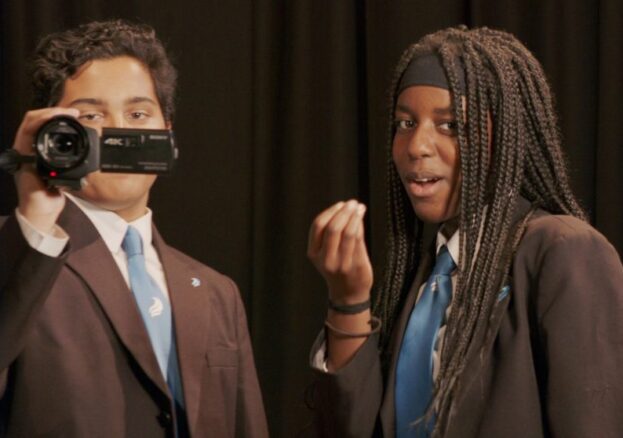
Britain’s relations with the peoples of the Caribbean and the Indian sub-continent do not, of course, belong to and begin in the 1940s.
British attitudes to the ex-colonial subject peoples of a former time cannot be charted from the appearance of a black proletariat in Birmingham or Bradford in the 1950s.
These relations have been central features in the formations of Britain’s material prosperity and dominance, as they are now central themes in English culture and in popular official ideologies.
That story should not indeed require to be rehearsed.[1]
Firecracker Goes Off As Stuart Hall Disappears To Stage Left. Cloud Of Unknowing Lifts To Reveal A Group Of 30 School Children (Around Year 7) From The London Borough Of Croydon, Sitting Cross-legged On The Carpet Facing The Audience. They Perform Windrush: A Tongue Twister.
